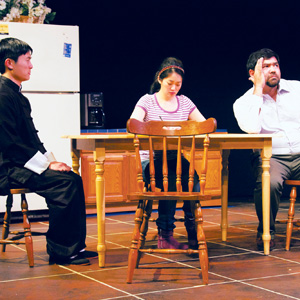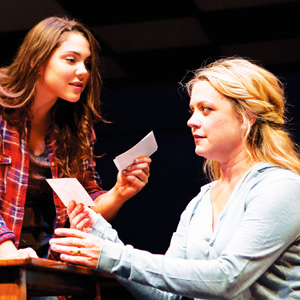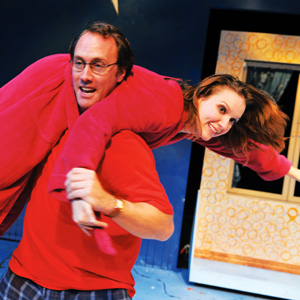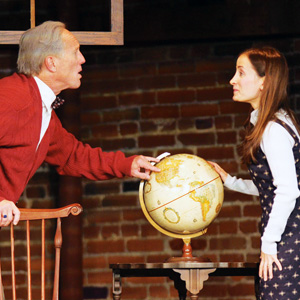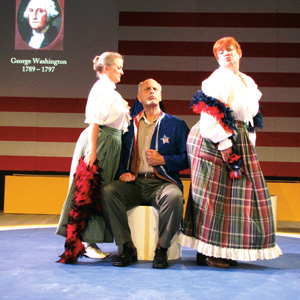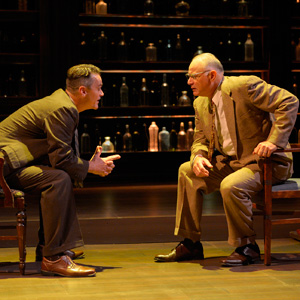When standing before a Mark Rothko painting, you may find yourself absorbed in the expansive canvas; or, exasperated, you may mutter “a third-grader could have painted this.
Articles by Sean Conwell
Lauren Yee’s provocatively titled Ching Chong Chinaman is making its San Jose debut at City Lights Theater with a production directed by Jeffrey Bracco.
San Jose Rep’s production (done in collaboration with Arizona Theatre Company), directed by David Ira Goldstein, begins on a seemingly banal note, with the song “Just Another Day” introducing neurotic stay-at-home mom Diana (Kendra Kassebaum), hard-working father Dan (Joe Cassidy), overly studious daughter Natalie (Andrea Ross) and golden-boy son Gabe (Jonathan Shew). It seems that we are in for the petty tribulations of the average white, middle-class suburban family—“living on a latte and a prayer,” as an almost cringe-worthy line from the opening number puts it.
It might be a contrary way to celebrate Christmas, but this year’s holiday offering from San Jose Stage, Reckless, is a dark, lyrical comedy by Craig Lucas (Prelude to a Kiss, The Light in the Piazza).
A Precocious young woman goes to work as a secretary for a retired lawyer. They don’t get along at first, but by the tear-jerking finale, they have developed a special bond. No—it’s not a thinly veiled version of the David Petraeus scandal. The current Tabard Theatre production of Trying is very much like Driving Miss Daisy.
“RACE IS the most incendiary topic in our history, and the moment it comes out you cannot close the lid on that box.” This line from David Mamet represents the idea behind his legal drama Race, the season opener at San Jose Stage.
44 Plays for 44 Presidents is exactly what its title says: a string of short, mostly self-contained miniature performances that relate the history of the U.S. presidency. Originally conceived by Chicago’s Neo-Futurists
The play is almost cinematic in its approach. One scene in which Kartheiser and Sharma leap through the apartment to the tune of a song by the Killers is more film montage than stage show. This effect, further embellished by John Iacovelli’s elaborate, immersive scenic designs.
When you go to see Chicago, you’re probably going for classic show tunes like “All That Jazz,” “Roxie” and “Razzle Dazzle,” or maybe for the scantily clad performers.
The year was 1935. Prohibition’s attempts at stamping out alcoholism by force had failed, but two men discovered that simply sitting down and opening up to each other could help them stop drinking. The men were Bill Wilson and Dr. Bob Smith, the founders of Alcoholics Anonymous, whose story is now told in Bill W. and Dr. Bob.

